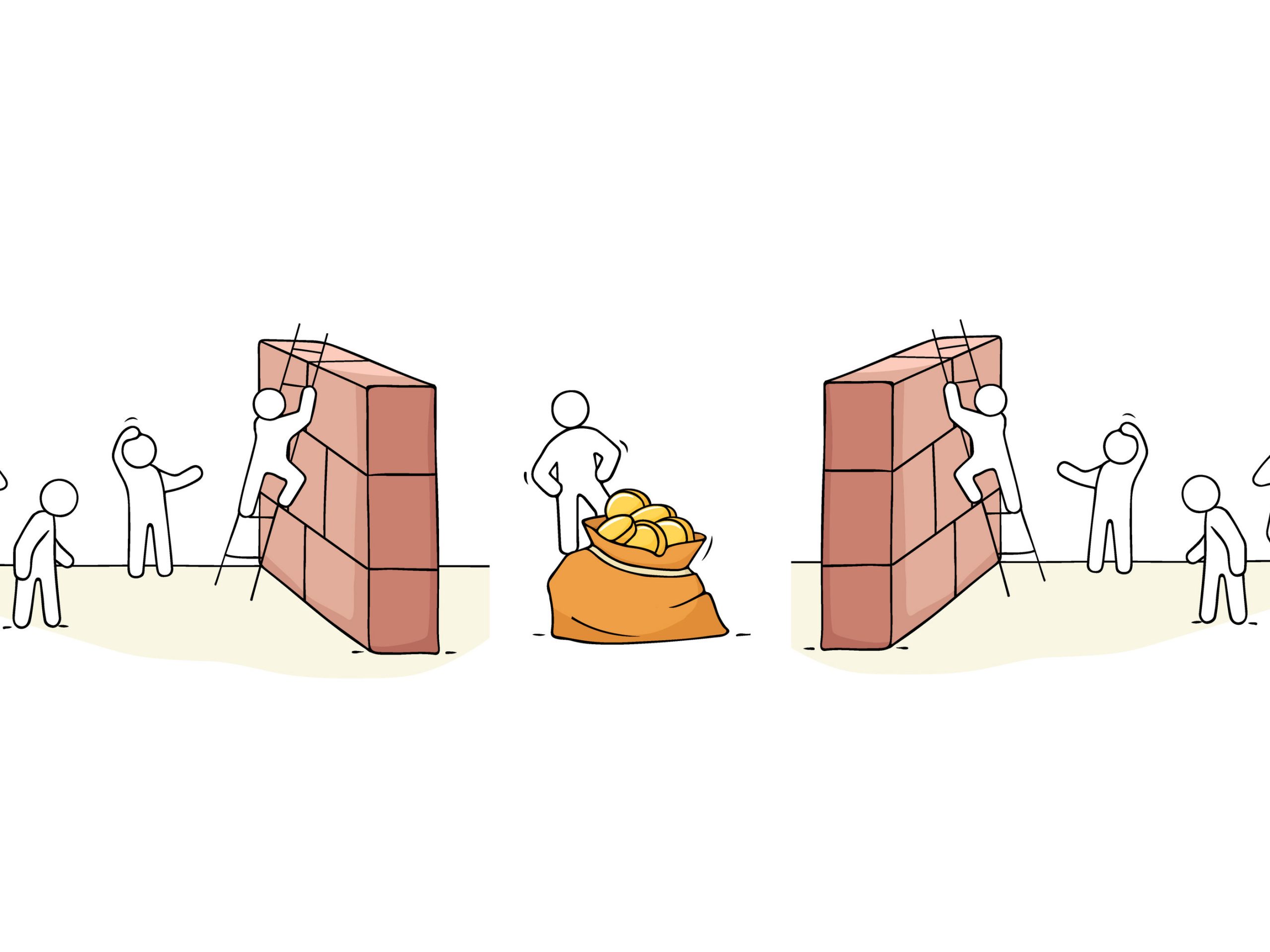In conflicts that occur simultaneously within and between groups, who would, when and why put aside their own interest to stand up for the interest of the social group he or she belongs to? Recent findings from game theoretical research allow a better understanding of such situations and could help speed up the resolution of conflicts.
 |
|
Whether in professional or in private life, time and again, people find themselves in a conflict between the interest they have in their own welfare and the interest of a social group to which they belong. The situation becomes even more complicated when the own group competes with (an)other group(s) for the coveted good. In order to pre-empt the others on behalf of the own group, an individual group member must take costly action. However, everyone prefers to wait and free-ride from volunteering group members. But the clock is ticking. If no one reacts in time, a competing group might grab the coveted good and the one own group might go away empty-handed. Who would, when and why put aside their own interest to provide for the common good? Moreover, what can be done to optimise this process? A recent game theoretical study provides answers.
Mr Cohn’s daughter Ina is in the 6th grade. Her school education is quite important to him but over the past few weeks, her performance has declined. At parents’ evening, Mr Cohn realises why. As the school is currently being renovated, class 6a has been assigned a classroom in the basement. It is cramped, illuminated with neon tubes, and two small windows lead to a light well. After listening to the class teacher for 10 minutes, Mr Cohn yawns – too little oxygen – and he then understands: concentration and the joy of learning have no chance under these conditions. The teacher asks the parents for their help in persuading the school management to move the class to another room. Mr Cohn considers volunteering. He knows that Ina’s class is not the only class in this predicament and that other classes will also be trying to convince the school management that they, above all, need one of the scarce, beautiful, well-ventilated rooms. The clock is ticking. But, Ina suffers from dyscalculia. Wouldn’t it be better, thinks Mr Cohn, to spend my limited time on supporting her instead of also taking care of other parents’ children? My daughter will benefit just as much if someone else volunteers. However, there is this new project waiting for me at work. Soon, I will have even less time. The other parents in the room are probably pondering similar thoughts. No one is spontaneously prepared to volunteer for the common good. The parents find themselves in a conflict between self-interest and the interest of the whole group. Moreover, time is working against them. The class teacher ends the parents’ evening by telling them that volunteers may contact him at any time. What will Mr Cohn do? What will the other parents do? When will someone take action in the interest of the group?
Lobbying for the firm’s interest or rather for the whole industry branch?
Such or similar conflicts within and between groups occur time and again: in working life, when the employee in a rare conversation with the top boss is hesitant as to whether to address the interests of the entire department or rather personal concerns. In the political arena, entrepreneurs may have to decide at a one-off meeting with the minister whether to use the available time to lobby for their industry or for a more specific firm interest. Or, when companies consider making a necessary investment that will benefit their whole industry branch or rather wait for another firm to become active. Free-riding incentives inside the own group conflict with incentives that apply in the intergroup conflict, namely to pre-empt other departments, branches or industries.
The lower my costs, the sooner I will stand up for my group
In a game theoretical model, Kai A. Konrad from the MPI for Tax Law and Public Finance, together with Stefano Barbieri from Tulane University and David A. Malueg from the University of California analyse the factors that determine when and why time-critical conflicts within and between groups will be resolved. They find that people involved in such conflicts do not react at an optimal time, but with delay. They wait longer the higher are their own costs of acting. Admittedly, everyone knows only their own costs and only suspects what costs the other persons might have. Nevertheless, the individual with the lowest costs will eventually take action for the group’s common good. Due to the delay, the costs incurred by her (and by the whole group?) are higher than they would have been if the decision had been made earlier. Mr Cohn might not be ready to commit himself to the interest of his daughter’s class until he has taken over the new job project and his already scarce time becomes even scarcer.
The bigger the group, the more incentives to free-ride
However, the point at which the conflict of interest is resolved depends not only on the costs of action of the individual group member but also on the group size. The larger the group, the greater the likelihood that there is a member among them who has very low costs. Should the class teacher therefore send an e-mail to everyone, including parents not present at the class parents’ evening, in the hope that there is someone with even lower costs among them and that the conflict will as such be resolved more quickly? Barbieri, Konrad and Malueg suggest that this strategy does not necessarily lead to the desired result, because, as a matter of fact, in larger groups individuals are more reluctant to act. If Mr Cohn sees that even more parents are encouraged to act, he will postpone his action. Since the two effects – the greater variation in costs and the stronger free-riding incentives with increasing group size – cancel each other out, there is no clear overall advantage for a smaller or for a larger group.
The more competitors, the more willing I am to act
However, the class teacher still has the chance to intervene as the timing of the action is also reliant on the intensity of competition between the groups, depending on the number of competitors. To speed up the process and increase the chances of a better classroom, the teacher could inform the parents that five more classes also have their eye on a nice, well-ventilated room. If Mr Cohn knows that not only one, but six other classes are competing for a better classroom, his willingness to put group interest before self-interest increases. A solution to the conflict in a shorter period of time is now more likely.
Reference:
- https://www.mpg.de/14400649/0130-pat-087896-me-first-or-us-first?c=2249
- © Collage based on iStock/Sapunkale
